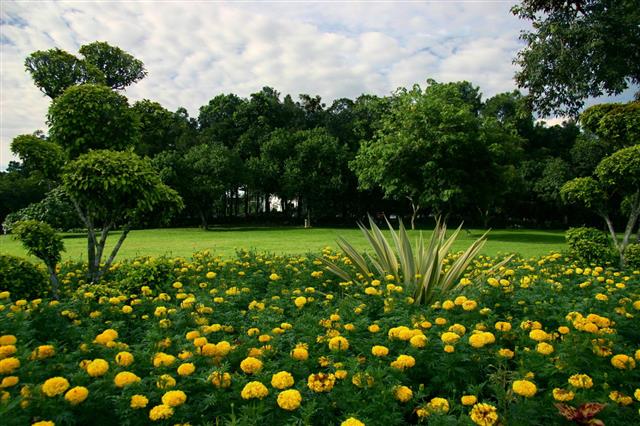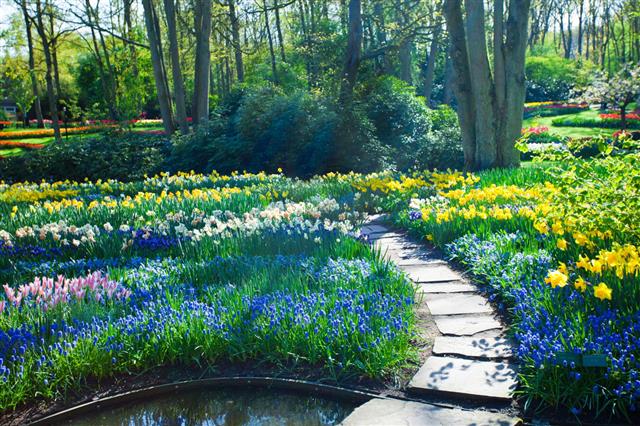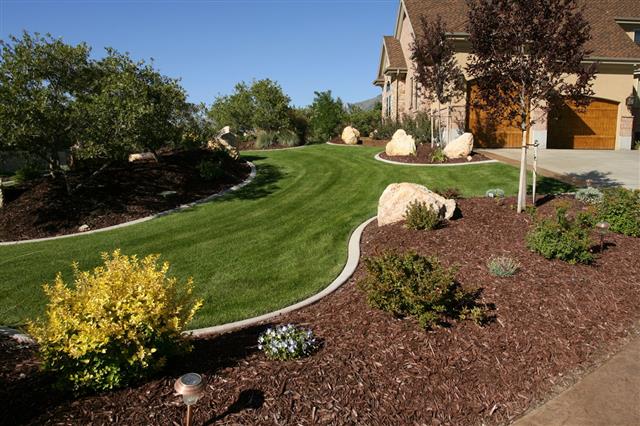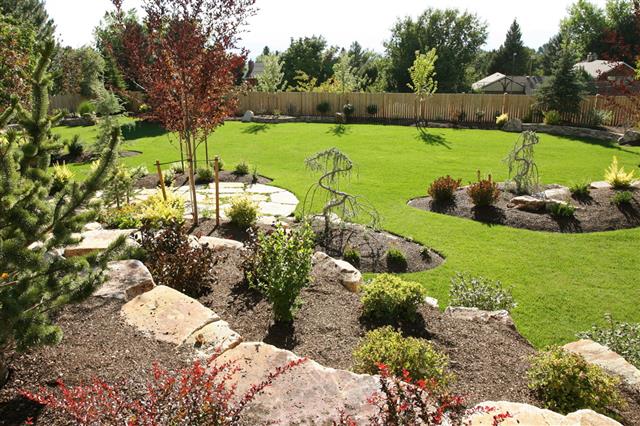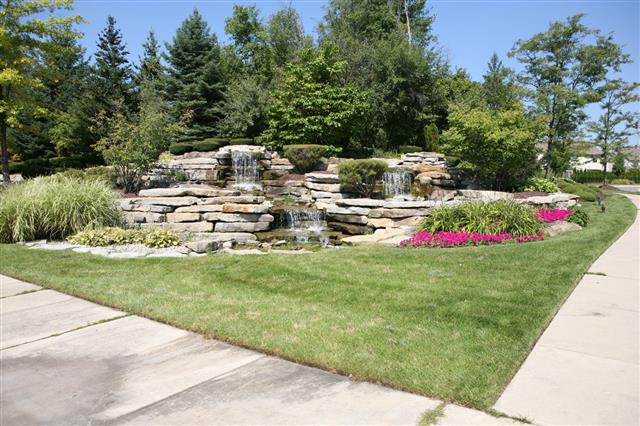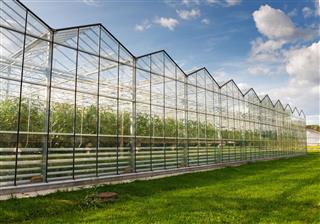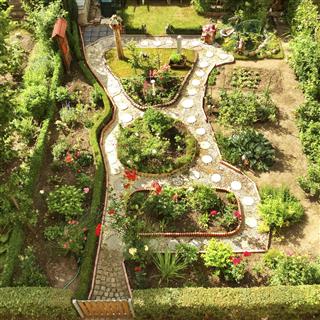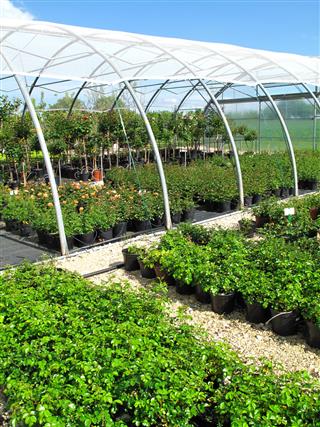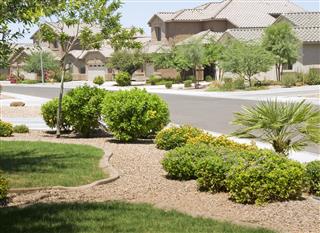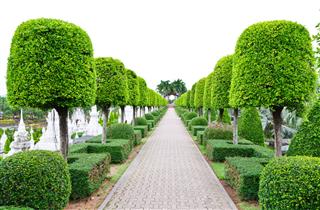
A feng shui designed garden or house is always pleasing to the eye and mind. It aims to harmonize the energy of those living in that space with a few rearrangements and ornamentation. So, here are some important feng shui tips for garden landscaping to bring positive energy in your home.
Quick Fact
Feng Shui (pronounced as “fung shway”) is a 3,000 year old Chinese philosophy which intends to bring about positive energy or qi or chi (as it is popularly known) to your surroundings by adopting and applying its rules.
Harnessing or maintaining the positive energy or life force that we have mentioned above, is the underlying principle of feng shui. The same can be understood by the famous lines from the noted Chinese historian Guo Pu’s commentary, “Qi rides the wind and scatters, but is retained when encountering water.” The name feng shui literally translates to wind-water, meaning that it strives to maintain the balance between the two with optimum use of space and things in it.
Traditionally, this principle has been used in oriental buildings for its spiritual significance. However, with passing years, it has gained tremendous amount of importance for the benefits it brings and the serenity it renders to a given space.
The general assumption about re-decorating is, a huge expensive and fat commission to the designer. However, you can save on all of that with these feng shui tips for garden landscaping given in this Gardenerdy article. So, take out that pen and paper and make a few valuable notes to bring some life and energy to your garden.
Walkways and Paths
Every element in your garden is intended to direct and harness the flow of qi. This is what makes the walkways and paths in the garden very important. A walkway or a cobbled path which leads from the garden to the front door of the house, is an indicator of a positive energy flow. Qi is known to flow along meandering paths with curvatures. So, etch a small pathway from your entrance to your door, with outdoor floor tiles. Place evergreen or flowering shrubs along its edge or place plants at your doorstep. The final entrance to your home should be clear and devoid of clutter, as the energy has to flow in without any obstruction. You can also install string lights along the edge of the pathway, so that it will be well-lit at night.
Color Coordination
Feng shui gives absolute importance to color schemes. It believes color adds to the character of the space and impacts the feelings of its inhabitants. For example, red is the color of life energy. Thus, it alleviates depression, increases blood pressure and encourages activity. However red in excess would also make the space very frenzied and aggressive. While too much of blue might increase coolness of the space to the point of being uninviting. Thus, it is important to maintain a balance while incorporating colors. Here’s a list of colors and their meanings:
Blue
This color is associated with water energy, your inner self, calmness, composure and your outwardly coolness. Blue lowers blood pressure, relaxes your mind and soothes anxieties. This color can be incorporated with small water bodies in and around the garden area.
Green
The richness of green and its abundance is related to wood energy. It denotes growth, balance, vitality and abundance. A lush green lawn is an excellent way of incorporating this tranquil color which also means new beginnings.
Purple
If you were to plant a Jacaranda tree in your garden, it would be a sight for every passerby. The picturesque purple stands for nobility, dignity, intuition and spirituality.
Yellow
Nothing can be mellow around yellow! It is the color that stimulates warmth, happiness and all those feelings which uplift your mood. Small pots of yellow flowers around the edges will do a good job of adding this important color in your garden.
Red
Red is the color of prosperity. As per feng shui, this color stands for fame, happiness and warmth. It energizes the soul and motivates it to achieve its goals.
Orange
Orange is the combination of red and yellow. Thus, it comes with benefits of both. Essentially, it denotes a double power.
Pink
Pink purely spells love. It is a color that generates feelings of affinity, happiness, an inner joy, generosity and sensuality. With a myriad flowers available in shades of pink, there is a lot that you can do with this color.
Brown
This is the color of the earth. It is associated with stability, wisdom which is as old as time. It also denotes depth.
Elements of Water
Water is an important element in feng shui as it holds qi, after wind passes it on it. Plan a few water bodies such an artificial well, a pond or a fountain around your garden to harness this beautiful energy. If you chose a fountain, chose one which has even distribution of water on all the sides. Adding a water element in the east or the southwest part in your garden will attract money and fame towards you.
Fish Pond
A fish pond is a definite recommendation for a feng shui garden. It not only adds to the beauty of the garden, but is also known to bring prosperity and good fortune. As fish swim upstream to find new breeding grounds, they symbolize wealth, diligence and a growth in career. Traditionally, gold-fish or Japanese carp are used for such ponds. Feng shui experts usually keep nine fish in the pond. Out of these nine, eight are gold-fish – representing wealth – and one is a black fish – representing protection and safety. The best place to have a pond is in the north, east and southeast zones.
Important Tips While Planning a Feng Shui Garden
According to Feng Shui principles, there are 9 zones that must be filled: They are the southeast (wealth), South (fame), Southwest (partnership), East (family), center (energy),West (children), Northeast (knowledge), North (career), Northwest (friends).
The entrance should be at the South and must be well-lit at all times. Avoid cluttering the entrance, it obstructs the flow of good energy that brings money and success.
Avoid planting cacti or any other plant with pointed leaves at your entrance. They imply tension and aggression in the surroundings. You can create a harmonious look of the garden with a variety of plants of different shapes, sizes and different colored flowers.
Light up the dark areas of your garden which create more yang energy. It is important to create a balance of light and dark in your garden.
Just as you work towards attracting energy towards your garden, it is important to retain it too. To ensure this, keep the hedges and fences clean. Make repairs if any, to keep the energy contained.
Keeping the space clutter free is an important principle of feng shui. It ensures a stability in the flow of positive energy. Thus, trim the bushes, remove dried leaves, cut out dead weeds, and keep the space well manicured at all times.
Add elements of earth with rocks, stones or pebble beds. You could add a small rock garden in one of the corners of your garden.
While decorating your garden, according to feng shui principles, use the bagua, or energy map of your home. A bagua essentially gives you nine life areas (represented by squares) in the map. Use these divisions as a guideline to decorate your garden and draw maximum benefits. To sum it up, a feng shui garden comprises a harmonious blend of mountains, greenery and water, which are symbolically represented by ancient rocks, evergreen lush plants and free-flowing water bodies.
